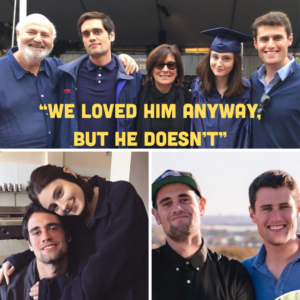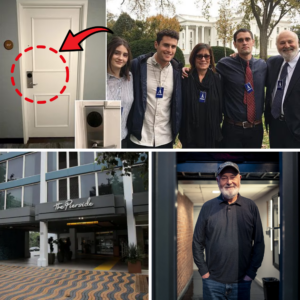In the cramped, humming confines of a New York City commuter train, where the daily grind meets the raw underbelly of American society, a single complaint escalated into a viral nightmare that has reignited national fury over racial profiling. Imagine this: You’re a successful Black screenwriter, fresh off crafting gut-wrenching episodes for FX’s Emmy-sweeping juggernaut The Bear, minding your business on a routine ride to Connecticut. Your legs, perhaps a tad sprawled after a long day, encroach on an empty seat—no harm, no foul in a half-empty car. Then, an elderly white woman boards, her eyes locking on you like a heat-seeking missile. She points, demands you “correct” your posture, and when you politely decline, she marches to the conductor. Minutes later, police swarm the train, handcuff you in front of stunned passengers, and yank you off like a criminal. Sound like a dystopian script? It’s not—it’s the harrowing reality that unfolded for Alex O’Keefe on September 18, 2025, aboard Metro-North Train #1518. With bodycam footage now circulating like wildfire and O’Keefe’s defiant Instagram post racking up millions of views, this incident isn’t just a personal affront; it’s a blistering indictment of how “Karen” entitlement, coupled with institutional bias, can derail lives in seconds. As O’Keefe himself roared in his now-iconic caption: “Sitting while Black is not illegal.” Buckle up—this tale of transit terror is equal parts infuriating, heartbreaking, and a clarion call for change.
Alex O’Keefe isn’t your average commuter; he’s a rising star in Hollywood’s pressure-cooker scene, a wordsmith whose pen bled authenticity into The Bear‘s first season. Picture the chaos of a Chicago sandwich shop under siege: frantic orders, simmering family feuds, and that relentless pulse of survival. O’Keefe, one of eight writers who scooped the 2023 Writers Guild Award for Best Comedy Series, infused those episodes with the kind of raw, lived-in tension that had critics and couch potatoes alike devouring the show like a late-night Italian beef. At 31, the Brooklyn-based scribe had clawed his way from indie shorts to FX glory, earning nods for his sharp dialogue that dissected class, grief, and the grind of urban life. But on that fateful Thursday morning, O’Keefe wasn’t scripting drama—he was living it. Boarding at Grand Central Terminal for a quick hop to New Haven, he settled into a quiet car, legs casually extended across an adjacent seat. The train rattled northward through the Bronx, a mosaic of graffiti-streaked tunnels and fleeting skyline glimpses, when she appeared: an older white woman, masked and prim, her demeanor screaming entitlement from a mile away.
It started innocuously enough—or so O’Keefe thought. The woman, whom he’d later dub “Old Karen” in his blistering post, clambered aboard at Fordham station and zeroed in on him like he was the only soul in a sea of empty benches. “Fix how you’re sitting,” she snapped, jabbing a finger at his outstretched legs. O’Keefe, exhausted from a dawn rewrite session, glanced up with a weary smile. “It’s an empty seat, ma’am. Plenty of room.” But civility curdled into confrontation. Unfazed, she huffed to the conductor, spinning a tale of disruption that painted O’Keefe as some seat-hogging menace. The train ground to a halt at the next stop, sirens weren’t involved yet, but the air thickened with dread. As passengers shifted uncomfortably—some filming on the sly—the conductor radioed for backup. Enter the MTA Police Department, badges gleaming under fluorescent lights, responding to a “disorderly passenger” call at 10:25 a.m. sharp. Four officers boarded, their presence alone shifting the car’s vibe from mundane to menacing.
What happened next unfolded like a fever dream scripted by Jordan Peele. O’Keefe, sensing the setup, began recording on his phone, his voice steady but laced with incredulity. “Officers, what’s this about?” One cop, a stern-faced veteran, pointed to the empty seat. “Ma’am says you’re blocking it. Time to go.” O’Keefe’s laugh was bitter, disbelieving. “For sitting? I’m the only Black guy in this car, and you’re pulling me for that?” The woman, now shrinking into her seat, avoided his gaze, but her friend—emboldened by the badges—leaned in with a zinger that would haunt viral threads: “You’re not the minority anymore.” O’Keefe’s blood boiled. “This is racial profiling 101,” he shot back, phone capturing every tense second. The cops, unmoved, demanded he exit to the platform. “Or what?” he pressed, invoking his rights like a shield. “I haven’t broken any law. Talk to her first.” But protocol be damned—or so it seemed. Hands on his arms, cuffs clicking into place, O’Keefe was hoisted from his seat amid gasps from onlookers. “You’re arresting the one Black dude on the train because this white woman didn’t like how I was sitting!” he bellowed, twisting to face her. “Sitting while Black is not illegal!” The video cuts as he’s marched off, the train doors hissing shut behind him, leaving a car full of whispers and wide eyes.
On the dimly lit Bronx platform, the humiliation peaked. Handcuffed to a railing, O’Keefe faced a grilling that felt more interrogation than inquiry. “Why didn’t you just move?” an officer barked, while another rifled through his bag for “pretext,” as he later described it. No statement from the complainant, no review of witnesses—just a Black man in cuffs, surrounded by blue. A small crowd gathered, mostly Black and brown commuters who whipped out phones, their footage syncing with O’Keefe’s in a chorus of citizen journalism. “This is America,” one bystander muttered, live-streaming the standoff. O’Keefe, ever the storyteller, turned the tables: “Demand a lawyer,” he reminded himself aloud, his voice a defiant anchor. After 20 agonizing minutes—threats of jail time dangling like a noose—the cops relented. No charges, no ticket, just a curt “You’re free to go. Next train’s in five.” Released without so much as an apology, O’Keefe boarded the follow-up ride, legs neatly tucked, but his spirit seared.
By evening, the internet ignited. O’Keefe’s Instagram carousel—three clips, a damning photo of the woman mid-glare, and a caption that sliced like a chef’s knife—exploded. “I was arrested on the @MTA train to Connecticut today, pulled off, handcuffed, and detained,” it began, racking up 2.5 million views in hours. “This incident was a series of power trips, white authority figures flexing their dominance over a Black man.” Hashtags like #SittingWhileBlack, #KarenOnTheTrain, and #MTAFail trended nationwide, drawing A-listers into the fray. Ayo Edebiri, O’Keefe’s The Bear co-conspirator, reposted with a fire emoji: “This is why we write. To scream what they won’t let us say.” Jeremy Allen White, the show’s brooding Carmy, DM’d support: “Brother, the kitchen’s got your back—let’s cook up some justice.” Even non-Hollywood voices piled on: NYC Mayor Eric Adams faced tag-bombing pleas for reform, while Governor Kathy Hochul’s office fielded calls about MTA accountability. TikTok edits synced the footage to Nina Simone’s “Feeling Good,” amassing 500k likes, while Reddit’s r/PublicFreakout dissected every frame, uncovering MTA rules on “occupying two seats” that seemed selectively enforced.
But amid the outrage, cracks of controversy emerged, adding fuel to the debate fire. The MTA fired back with a statement that read like a corporate dodge: Officers responded to a “disorderly passenger” report, backed by onboard cameras showing O’Keefe’s legs “stretched across an adjacent seat”—a violation of their no-manspreading edict. “He refused police direction to exit,” they claimed, insisting no arrest occurred, just a “detainment” until the next train. Bodycam footage, released piecemeal under public pressure, corroborated the leg sprawl but omitted the woman’s role, sparking cries of edited narrative. “They never questioned her,” O’Keefe countered in a follow-up Reel, viewed 1.2 million times. “It’s always the Black body under the microscope.” Comment sections fractured: Some decried his “defiance”—”Rules are rules, bro, just move”—while others hailed his stand as civil disobedience gold. “This ain’t about seats; it’s about who gets to take up space,” one viral thread argued, linking it to broader battles from Starbucks sit-ins to Central Park birdwatchers.
O’Keefe’s reflection cuts deepest, transforming viral anger into a manifesto for the marginalized. In a raw Entertainment Weekly interview, he unpacked the emotional shrapnel: “I felt like a prop in someone else’s bad day. Handcuffed, profiled, reduced to ‘the one Black dude.’ But I filmed it because silence is complicity.” The friend’s quip—”You’re not the minority anymore”—stung like salt in a wound, evoking post-2020 reckonings where “woke” gains mask persistent perils. O’Keefe, a father of one with a toddler’s drawings pinned to his script wall, worries for his son’s future rides. “What do I tell him? Duck your head? Apologize for existing?” Yet, resilience shines through: He’s channeling the chaos into a spec script about “transit warriors,” pitching it to FX brass as “The Bear meets Sorry to Bother You.” Support swells—fundraisers for his legal review hit $50k, NAACP chapters rally for MTA audits, and celebs like John Oliver tease segments skewering “seat sheriffs.”
This train tale transcends one man’s ordeal; it’s a microcosm of America’s fractured soul, where mundane moments morph into racial reckonings. In a city of 8 million stories, O’Keefe’s screams from the rails echo the unspoken: Black excellence—be it Emmy pens or quiet commutes—still invites scrutiny. As the videos loop eternally online, one question haunts: When does “disorderly” become code for “different”? O’Keefe’s answer? Fight back, film it, and flip the script. In the end, his detainment didn’t derail his voice—it amplified it, turning a Bronx platform into a stage for the unheard. What’s next? An MTA mea culpa? Policy pivots? Or just more hashtags in the void? One thing’s certain: Alex O’Keefe isn’t sitting quietly anymore. And neither should we.





